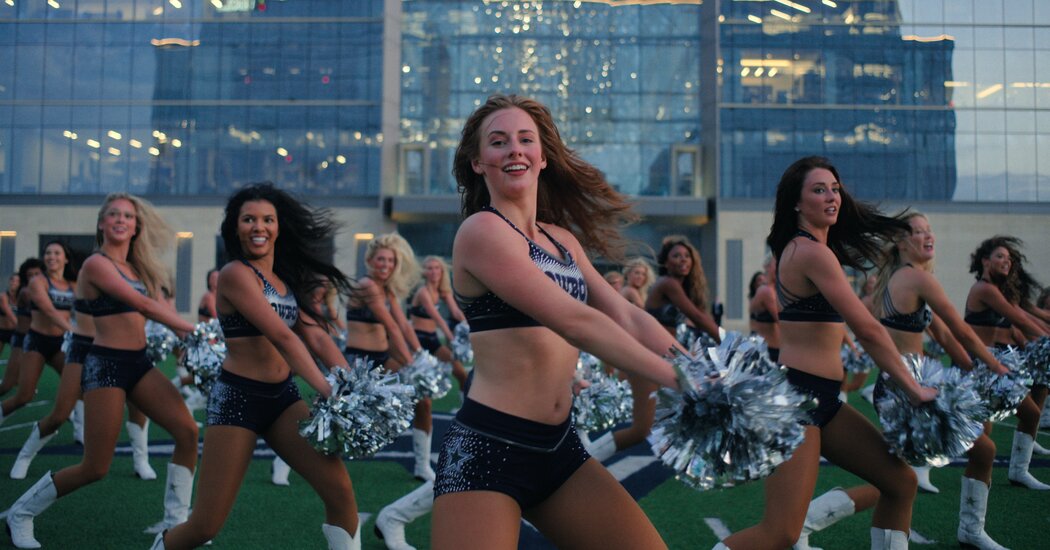“I don’t know who came up with that,” says Caroline Sunvold, a former D.C.C., in the series. “That’s what kind of rips up people’s hips.” She should know. Ms. Sunvold, still in her 20s, has undergone hip and knee surgery, and in some scenes, relies on a walker as she recovers.
Yet she misses the team sorely, and seems a bit lost in her post-cheering life. “It’s like D.C.C. land is this mythical, magical world,” she says. “And once you start sipping that Gatorade, you do not want to come out.” Ms. Sunvold even offers D.C.C. audition coaching to her younger sister, Anna Cate, who is overjoyed when she, too, makes the team.
Beyond all the other attributes, the D.C.C. — and this series — promotes the dancers’ traditionally feminine sweetness, helpfulness and family values. Cheerleading is, by definition, devoted to celebrating the success of others.
“Thinking of others, it’s what cheerleaders do,” Ms. Finglass reminds her dancers.
It can also be a family tradition, and we meet several women whose mothers also cheered for the D.C.C. decades ago and remain deeply invested in the organization. The emphasis on altruism and tradition recurs often, as do references to Christian faith. Dancers are filmed chatting warmly with residents at a senior citizen home, praying before meals and attending an evangelical church service (where the pastor cries out, “God loves the Dallas Cowboys!”). The show devotes considerable airtime to rookie dancer, Reece Weaver, a soft-spoken former Miss Florida’s Outstanding Teen who says she dances only to “give glory to God.” Ms. Weaver was engaged during the series, and her fiancé (now husband), she says, was the only young man she ever permitted to put his arm around her shoulders.
This insistence on old-fashioned, girlish innocence appears even in the series’ title. The D.C.C. calls its members “America’s sweethearts”— an antiquated term that speaks volumes. “Sweetheart” conjures an ingénue in a 1950s movie — something like a girlfriend, but minus any adult sexuality. With this retro title, the D.C.C. declare themselves the chaste helpmates of not only the Dallas Cowboys (whose players they are contractually forbidden to date), but of all America.
Can we reconcile the “sweetheart” vibe with the D.C.C.’s bombshell look and come-hither moves? Not really. The inherent contradiction of women trying to uphold apple-pie wholesomeness while wearing so little and dancing so provocatively lies at the heart of this series, a reminder that the Madonna-whore dichotomy is still alive and um, kicking, in popular culture.







